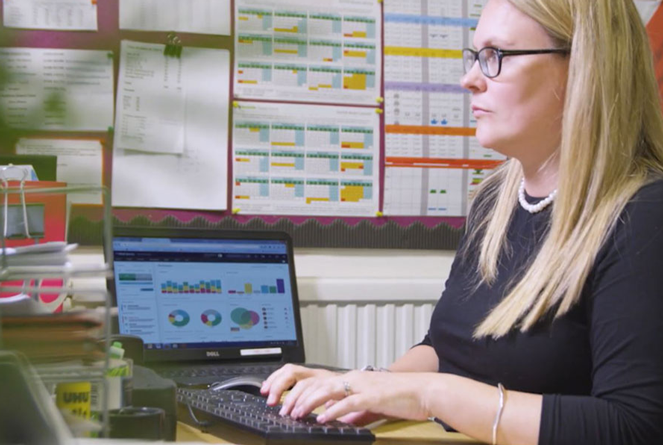Introduction
Disclosure and Barring Service (DBS) checks in education are vital safeguards ensuring the safety and well-being of children and young people. School administrators and hiring managers must understand who requires these checks, the nuances of regulated activity, and the DBS portability rules.
This blog, written by one of our education HR experts, Jo Garner, discusses the intricacies of DBS checks in schools, providing clarity on obligations, best practices, and considerations for safeguarding children.
Why do schools need to carry out DBS checks?
DBS checks are essential for identifying any individuals who may pose a risk to children or young people. By conducting DBS checks, schools can ensure that staff members, volunteers, and other personnel with unsupervised access to students have undergone thorough background checks. This helps to prevent individuals with a history of harmful behaviour, such as criminal offences, from working in environments where they could potentially harm students. Additionally, DBS checks help schools comply with legal and regulatory requirements related to child protection and safeguarding.
What staff require a DBS check?
The majority of staff working in schools, colleges, and nurseries will require an enhanced DBS check with a check of the children’s barred list.
Those not engaging in regulated activity will need an enhanced check but won’t be eligible for a barred list check.
Below is a list detailing who needs a DBS check in schools.
- Employees engaged in regulated activity, i.e., teachers
- Volunteers undertaking unsupervised activities with regular contact with children
- Third-party workers involved in regulated activity
Who does not require a DBS check?
Individuals who do not engage in regulated activity typically do not require a DBS check in schools. This includes staff who do not have unsupervised contact with children or do not work regularly with them. Additionally, volunteers who are supervised during their activities may also fall into this category, although some employers may still opt to conduct DBS checks for added precaution.
Regulated activity defined
Regulated activity encompasses tasks where individuals have unsupervised access to children or engage in regular contact with them. Additionally, "working regularly" in regulated activity refers to individuals who work once a week or more often, at least four days in a 30-day period.
DBS Checks for Governors, Trustees, and Members
Before assuming their roles, governors in maintained schools and single academies are required to undergo enhanced DBS checks. Similarly, members and trustees in Multi-Academy Trusts must also undergo enhanced DBS checks before taking up their positions. However, exceptions to this rule include members of Local Governing Boards in Multi-Academy Trusts without delegated responsibilities.
Supervised volunteers and DBS checks
Supervised volunteers who do not engage in unsupervised activities with children are typically exempt from regulated activity and may not require enhanced DBS checks. As mentioned, employers may conduct enhanced DBS checks for supervised volunteers as an additional precautionary measure.
Understanding DBS portability rules
Individuals who have undergone an enhanced DBS check for the children's workforce since May 12, 2006, and meet specific criteria may not need a new DBS check. It is essential for employers to verify previous DBS checks were conducted at an enhanced level and meet specific criteria before accepting them.
Children's Barred List
Individuals engaging in regulated activity must undergo checks against the Children's Barred List as part of their DBS application process. However, governors are typically exempt from checks against the Children's Barred List as they are not considered to be engaging in regulated activity.
DBS consent forms
DBS consent forms are crucial for obtaining permission from prospective employees to conduct DBS checks and share relevant information with third parties. Prospective employees provide consent to share DBS information with third parties, such as HR providers, if necessary.
Retention of DBS certificates
Employers are advised not to retain copies of DBS certificates for more than six months and to destroy them once employment decisions have been made. Following recommended best practices, employers should securely destroy DBS certificates and related documents.
DBS Update Service
The DBS Update Service allows individuals and employers to access up-to-date DBS information online, reducing the need for new DBS certificates in certain circumstances. Certain staff categories, such as exam invigilators or supply teachers, may benefit from registering with the DBS Update Service due to the nature of their roles and potential breaks in employment.
Re-checks and ongoing monitoring
Employers are not obligated to conduct regular re-checks but should do so if concerns arise about an individual's suitability to work with children. Re-checks for existing staff should only be conducted if there are specific concerns about their suitability to work with children.
Commencing work pending DBS clearance
Employers may choose to allow individuals to commence work pending DBS clearance but should conduct risk assessments and ensure appropriate supervision. Risk assessments are essential in determining whether individuals can have unsupervised access to children while awaiting DBS clearance.
Handling positive DBS disclosures
Employers should discuss positive disclosures with the individual, considering the nature and relevance to the role, and complete a risk assessment. Risk assessments are crucial in determining the suitability of individuals with positive DBS disclosures for working with children and should be thoroughly documented.
Recording on the Single Central Record (SCR)
Employers must ensure accurate recording of DBS checks on the Single Central Record, including dates of checks and relevant documentation. Accurate recording of the dates of DBS certificates and checks against the Children's Barred List on the SCR is crucial for maintaining compliance and transparency.
Conclusion
Navigating DBS checks in schools requires diligence, adherence to regulations, and a commitment to safeguarding children. By understanding the nuances of regulated activity, DBS portability rules, and best practices for record-keeping, schools can create safer environments for their pupils. Regular review and compliance with DBS guidelines ensure ongoing protection for all school community members.
Need HR help in your school?
Ready to streamline your school's DBS checks and education HR processes?
Look no further than Juniper, your trusted education HR partner.
With our team of expert consultants celebrating over 200 years of combined HR experience, you can rest assured that we have the expertise to address any challenge you're facing.
Take the first step toward smoother operations by booking a free consultation today. Together, we can navigate the intricacies of education HR and ensure your school operates efficiently and effectively.


/Primary%20school%20.jpg?width=2000&name=Primary%20school%20.jpg)








.png?width=940&height=788&name=Lingfield%20College%20Case%20Study%20(5).png)
-1.png?width=1000&height=833&name=National%20Association%20of%20Head%20Teachers%20(3)-1.png)
-3.png?width=1080&height=1080&name=Untitled%20design%20(10)-3.png)






